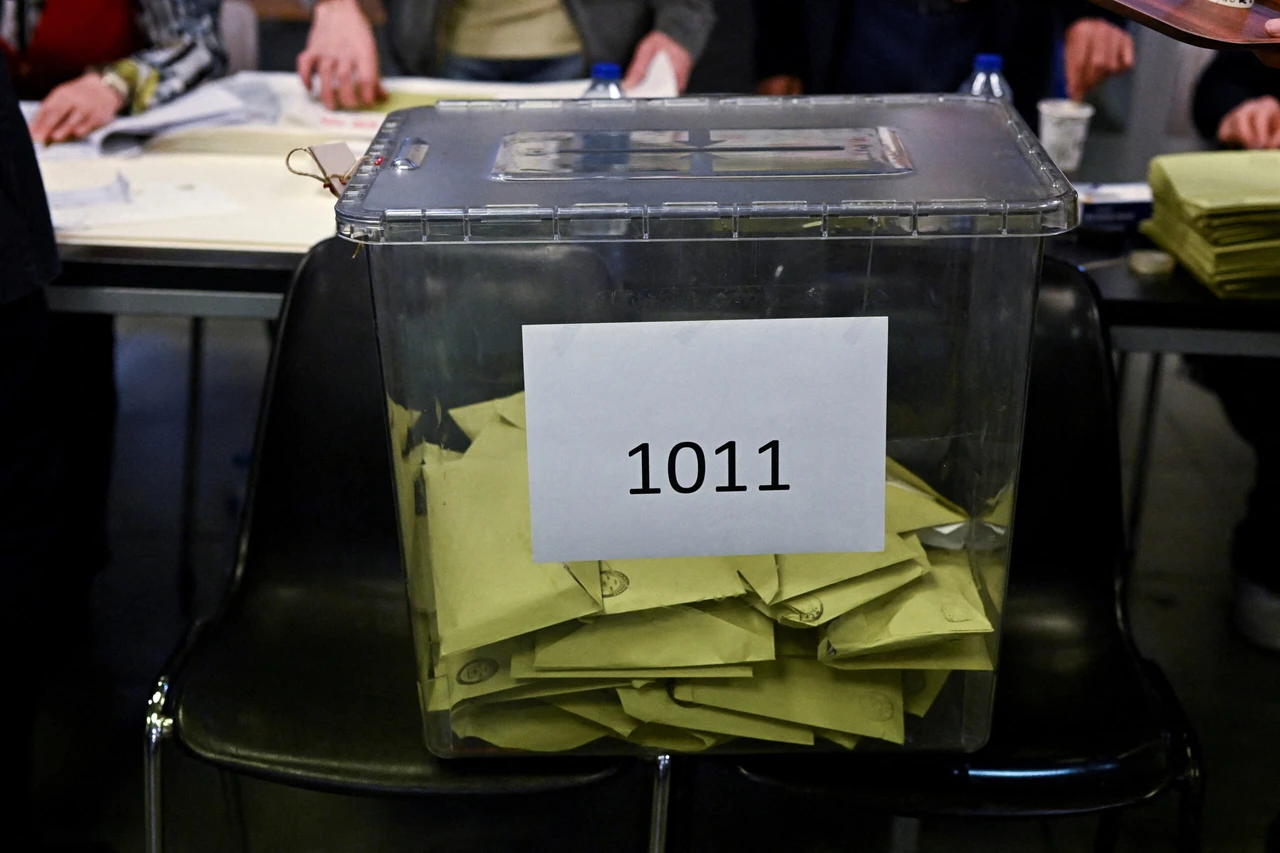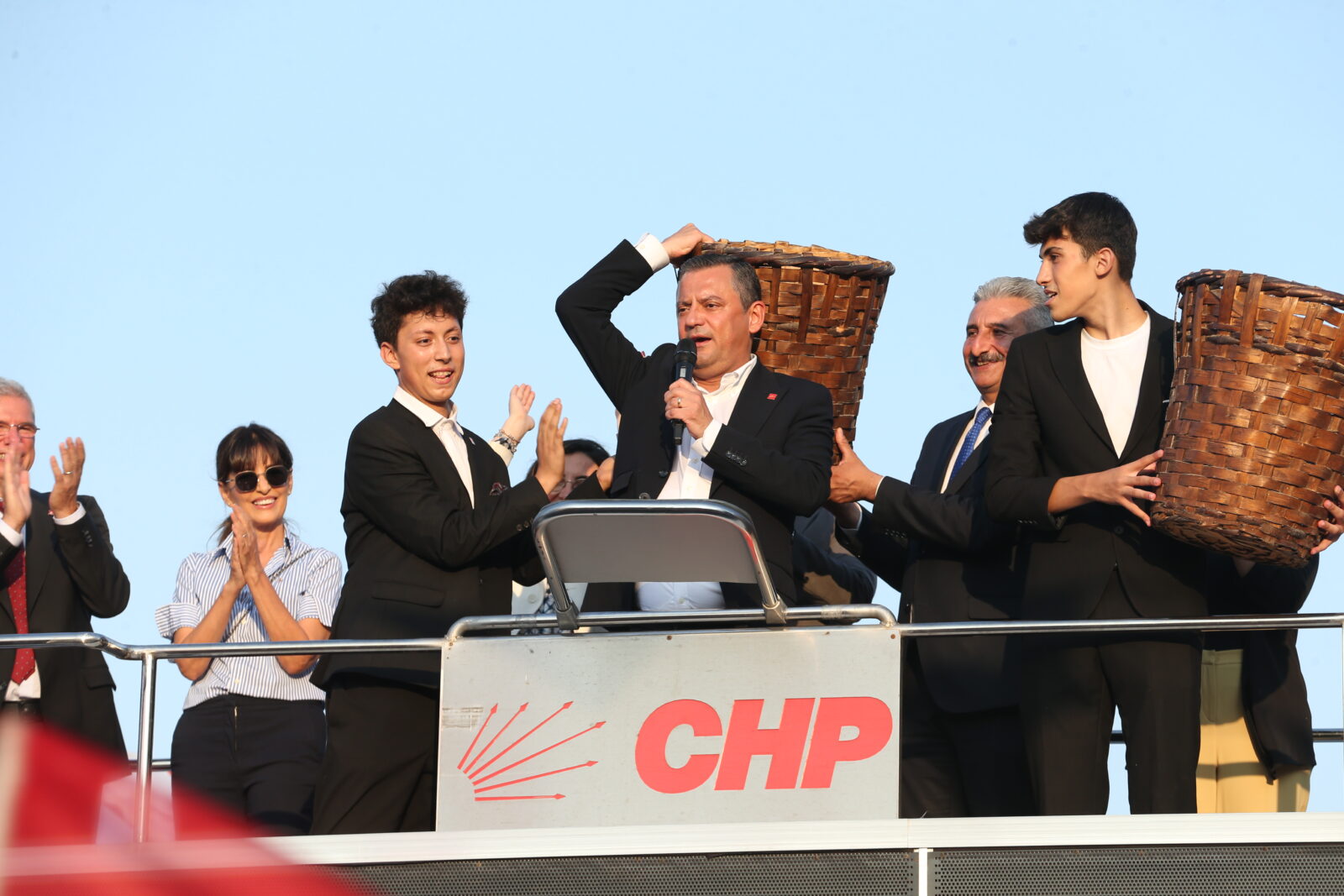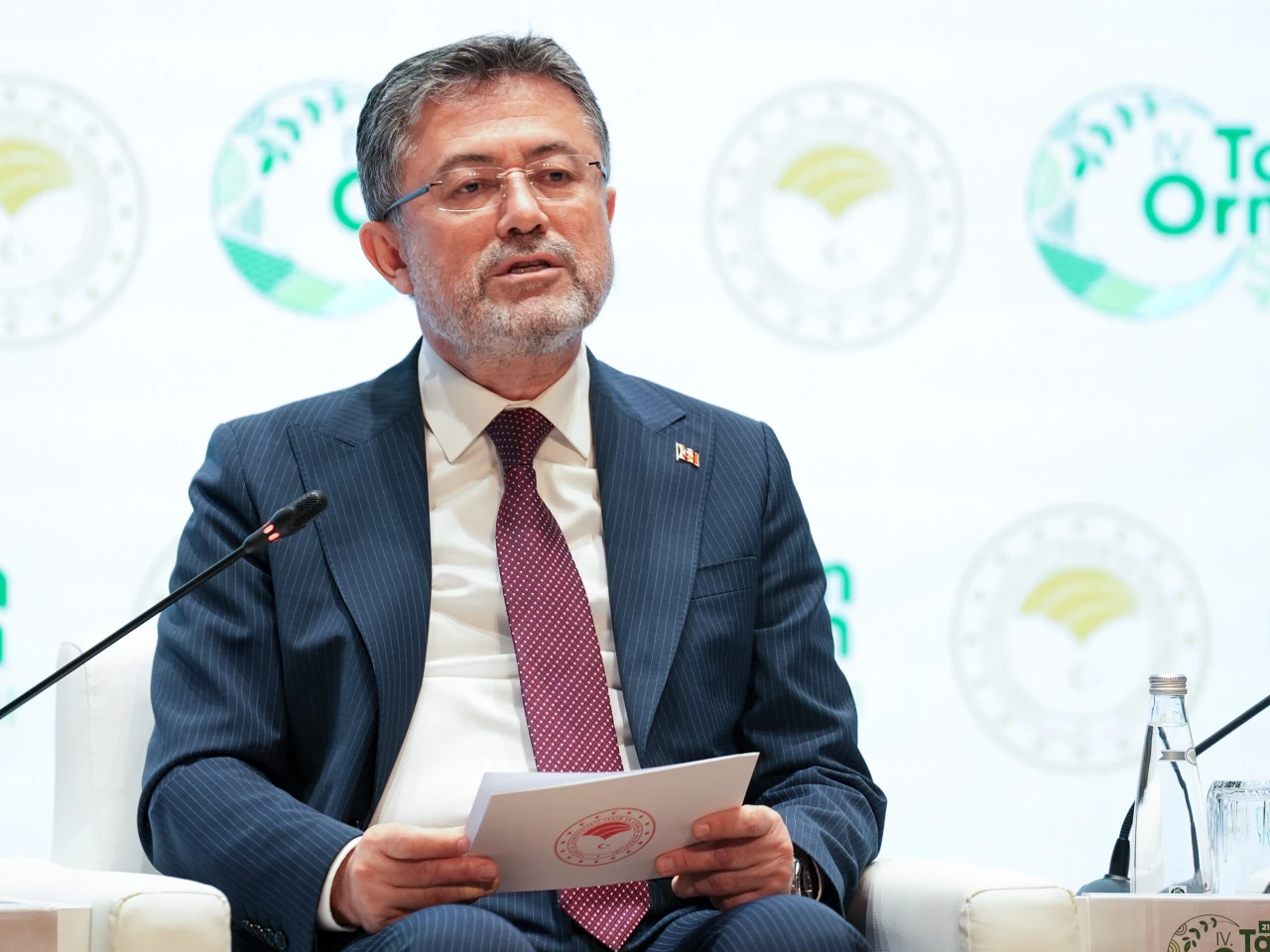Early elections in Türkiye: Will ruling AK Party face main opposition’s challenge?
 A ballot box is seen at a polling station during the presidential and parliamentary elections, in Istanbul, Türkiye, May 14, 2023. (Reuters Photo)
A ballot box is seen at a polling station during the presidential and parliamentary elections, in Istanbul, Türkiye, May 14, 2023. (Reuters Photo)
Discussions surrounding early elections in Türkiye have gained momentum, particularly driven by the main opposition Republican People’s Party (CHP). This debate coincides with a period of normalization in relations between the CHP and the ruling Justice and Development Party (AK Party), making the timing especially significant.
CHP leader Ozgur Ozel has been vocal in his calls for early elections, particularly since the March 31 local elections.
In a recent statement, Ozel remarked, “There are five years between two elections. The midpoint is 2.5 years. If Erdogan doesn’t call for early elections, he cannot run again. When 2.5 years come, let’s renew the elections, and if Erdogan is confident, he can compete with us once again.”
He emphasized that CHP would not support any early election call after this period.
‘Put down the basket,’ says main opposition
While continuing to push for early elections, CHP has also criticized the government on issues like minimum wage and pensions. During a July rally, Ozel criticized the AK Party’s handling of retirement policies, stating, “You are becoming a burden on this nation.” He also reiterated his party’s commitment to governance, declaring that CHP would lead Türkiye once more.
In a further appeal to President Erdogan, Ozel urged, “Mr. Tayyip, put down the basket. I will carry the retirees like a lion. If you can’t carry it, then put down the basket.”
CHP’s advocacy for early elections gained further traction in July when Ozel proposed holding elections within two months, reflecting public demand.

Early elections: ‘Not a healthy move’
However, the ruling AK Party and its People’s Alliance partner, the Nationalist Movement Party (MHP), have resisted these calls. AK Party officials, including President Erdogan, insist that elections will be held as scheduled in four years.
MHP Deputy Chairman Ismail Ozdemir echoed this sentiment, citing regional instability and Türkiye’s significant diplomatic efforts as reasons to avoid early elections.
Ozdemir made a significant statement in an interview with Türkiye daily, regarding the matter.
In response to the early election demands, Ozdemir stated that they did not foresee such an option and that an early election under the current conditions would not be a healthy solution.
There is a serious war environment in the south and north of us. The future of Balkan politics is uncertain. Türkiye must be prepared for every scenario. Resolving the grain crisis between Russia and Ukraine, the diplomatic efforts we have made regarding the Israel-Palestine issue, mediating the crisis between Ethiopia and Somalia, and the agreement reached with Iraq on combating terrorism. These are significant steps, valuable actions. Given all these achievements and the current chaos in international politics, holding an election is not a healthy move. We do not foresee or expect this.
Ismail Ozdemir, MHP Deputy Chairman
Attempt to undermine political stability
Adding to the debate, Mehmet Ucum, chief advisor to the president, argued in an Anadolu analysis that early election discussions are an attempt to undermine Türkiye’s political stability until 2028.
Ucum stated that an ideological move is being made to undermine Türkiye’s political stability until 2028 and that the country is being distracted from its real agenda concerning the economy and law with an artificial early election debate.
Despite the opposition’s calls, the path to early elections remains constitutionally complex.
Election fatigue in Türkiye
Following the general and local elections on May 14 and 28, there is a growing sense of “election fatigue” among the Turkish public.
Despite this, two constitutional methods exist for renewing elections: either the president can unilaterally decide to initiate them, or the Turkish Parliament can do so with the support of 360 deputies.
However, given the current composition of Parliament, any move toward renewing elections would necessitate consensus among the various political parties.



